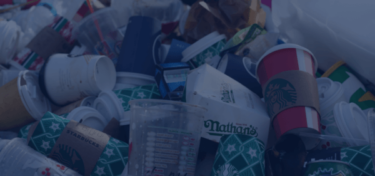Home – Case Studies – Identifying Circular Value Chains for the World Economic Forum
The Situation
The World Economic Forum (WEF) Low-Carbon Emitting Technologies (LCET) initiative is a collaboration between leading chemical industry players. The initiative aims to accelerate the development and scale up of low-carbon emitting technologies in the chemical industry and related circular value chains to provide a marked reduction in greenhouse gas (GHG) emissions. The main objective of the Waste Processing (& Circularity) Cluster (WPC) is to close the carbon loop by reducing plastic waste and GHG emissions by turning linear value chains into value cycles using plastic waste as a source of feedstock.
Through this project, the WPC sought to identify attractive sustainable circular value chains to increase recycling rates and enable the reduction of greenhouse gases through plastic waste recycling by 2030. To achieve this, the WPC commissioned a concept study, supported by E4tech and Anthesis, to collate a joint knowledge base of market and technology information and identify the most promising reverse value chains for collaboration.
Our Solutions
The knowledge base collated for this project included a regulatory landscape review and plastic flow assessment and plastics packaging forecast for the key sectors in the EU27 and a detailed plastics flow assessment for Germany, France, Spain and Italy. This was complemented by a set of technology fact sheets with key suppliers for the recycling technologies. This information was used to define ten circular chains that take plastic waste from the packaging, automotive, and building and construction sectors, process them using different recycling technologies, and produce different outputs.
Five circular value chains were selected based on a detailed assessment of material flows, potential added value generation across the value chain, recycling technology concepts and their commercial status and supplier availability, relative GHG reduction potential, and the flexibility and suitability of each chain in the changing regulatory environment.
Through a combination of desk research and over 20 stakeholder interviews, an assessment was made of the barriers to scaling each of the value chains in the EU27 region, and the collaborative actions that could overcome or mitigate the barriers. The participating chemical industry players identified areas in which they could collaborate to address the barriers related to further development and scale up of these chains, through joint R&D and value chain development and implementation activities.
The E4tech and Anthesis report provided WEF with:
- A joint knowledge base covering the EU27 plastics market and future projected growth
- A set of technology fact sheets and related key supplier lists
- A value chain analysis for key reverse plastics supply chains in the packaging, automotive and building & construction sectors
- Management consultancy support to apply and utilise the knowledge base to develop key proposals
- Roadmaps for three future projects to be pursued by the participating chemical industry players
Explore our Circularity Solutions
Discover how Anthesis can support your sustainability ambitions.
Impacts of the Project
Alliances for collaboration
Three concrete project proposals were developed to enable the following alliances for collaboration: The joint funding of a Research and Development (R&D) project, which aims to use an R&D Hub to help commercialise selected technologies by 2030 with a first of a kind production prototype at full scale, a project to scale up infrastructure and technology for the collection, aggregation, and preparation of laminate and multi-layer post-consumer waste through partnerships between chemical industry players and other participants in the value chain and a system project to significantly increase the availability of higher value plastic waste streams using a plastics park approach.

Get in touch
We’d love to hear from you
We are the world’s leading purpose driven, digitally enabled, science-based activator. And always welcome inquiries and partnerships to drive positive change together.









